The increasing popularity of non-alcoholic beers in the UK and globally
21st June, 2020
Whilst the beer industry has remained stagnant for a number of years, the non-alcoholic industry is going through a time of unprecedented growth and innovation, making it an attractive market for beverage producers. In the UK non-alcoholic beer sales grew by 58% in the last year, in part driven by an increasingly innovative product landscape. For example Lagunitas released an alcohol-free zero calorie THC beer in America, a UK based company, Seedlip, created the “world’s first” distilled non-alcoholic spirits and major brewers such as Guinness, Heineken, and Budweiser released low alcohol versions of their flagship beers.
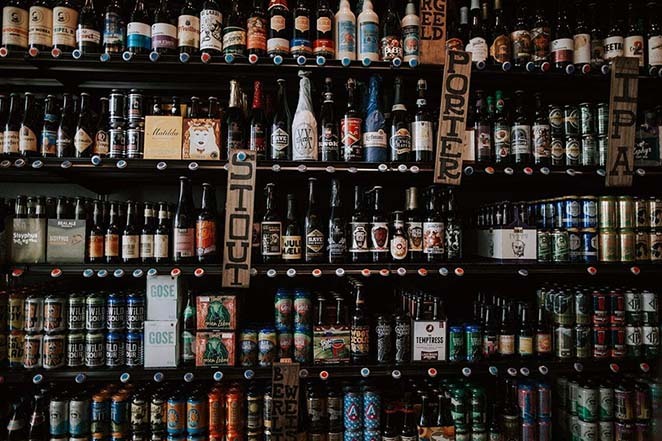
Largely, these product innovations have been aimed at attracting the millennial customer, the key driver behind the rising demand for non-alcoholic beverages. This surging popularity has even given risen to a new name for the category NOLO drinks, meaning no or low alcohol drinks.
However, there are a plethora of motivations and markets behind the rise in popularity of alcohol-free beer. This blog looks into why people are increasingly choosing to drink non-alcoholic (NOLO) beverages, how much the market has grown and ultimately what this means for drinks manufacturers.
Why do people choose not to drink alcohol?
There are a variety of reasons people don’t drink alcohol, including religious reasons, personal preferences, health benefits and driving responsibilities – making it a large and diverse market, that represents 57% of the global population in 2019. The World Health Organisation expects this number to grow over the coming years, which is reflected in the fact that the number of people that are tee total is increasing in all age groups, except over 65s in Great Britain .
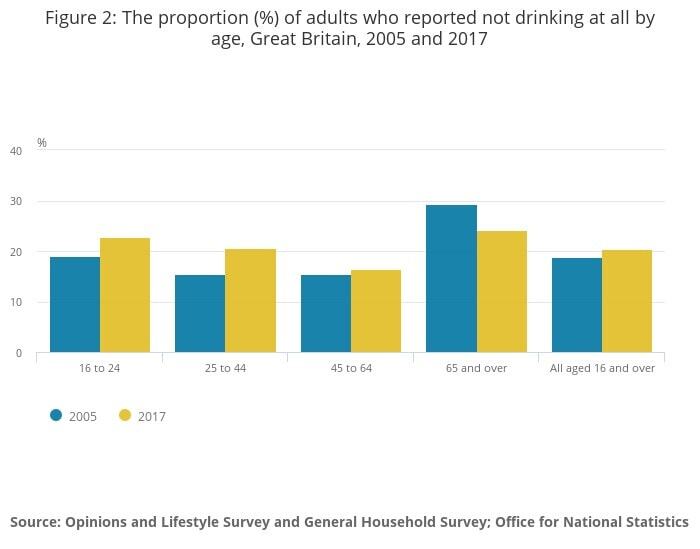
Nowhere is this more pronounced than in younger consumers who are increasingly demanding more non-alcoholic beers, cocktails and niche non-alcoholic products such as cactus waters and cannabis lattes.
In part this can be attributed to NOLO drinks (no or low alcoholic drinks) becoming more socially acceptable according to research by Carlsberg, with millennials the most likely to try a non-alcoholic beer.
This is further evidenced by western markets drinking less alcohol as millennials find alcohol less attractive than older consumers.
Whereas the predominantly Muslim Middle East has traditionally had low levels of drinking due to religious laws.
This has created a large market for non-alcoholic beverages with nearly a third of global non-alcoholic beer sold in the Arabic world.
Whilst non-alcoholic beverages are often perceived as a replacement to their alcoholic counterparts, research shows that 20% of non-alcoholic beer is sold as a replacement to soft drinks rather than beer.
This means that NOLO drinks manufacturers will need to market their products as both an alternative to alcoholic and soft drinks, to achieve full market coverage.
Non-alcoholic drinks grow in popularity globally as millennials drink less alcohol
The array of consumer reasons and motivations behind the decision to buy non-alcoholic drinks may make it tricky for drink manufacturers to position a product. However the heady growth that the market looks set to achieve over the coming decades makes it very difficult for alcohol producers to ignore.
In contrast to the stagnant lager market, where major brands such as Becks (-26%), Budweiser (-3.8%) and Carlsberg (-11%) are seeing a significant drop in year-on-year lager sales, NOLO beers are becoming increasingly popular.
For example, non-alcoholic beers sales grew by nearly 20% over the last five years, making it the fastest growing area within the beer industry.
This is paralleled across the globe with the UK market enjoying 13% growth in 2017, and nearly a third of all Chinese beers launched in 2016 being non-alcoholic.
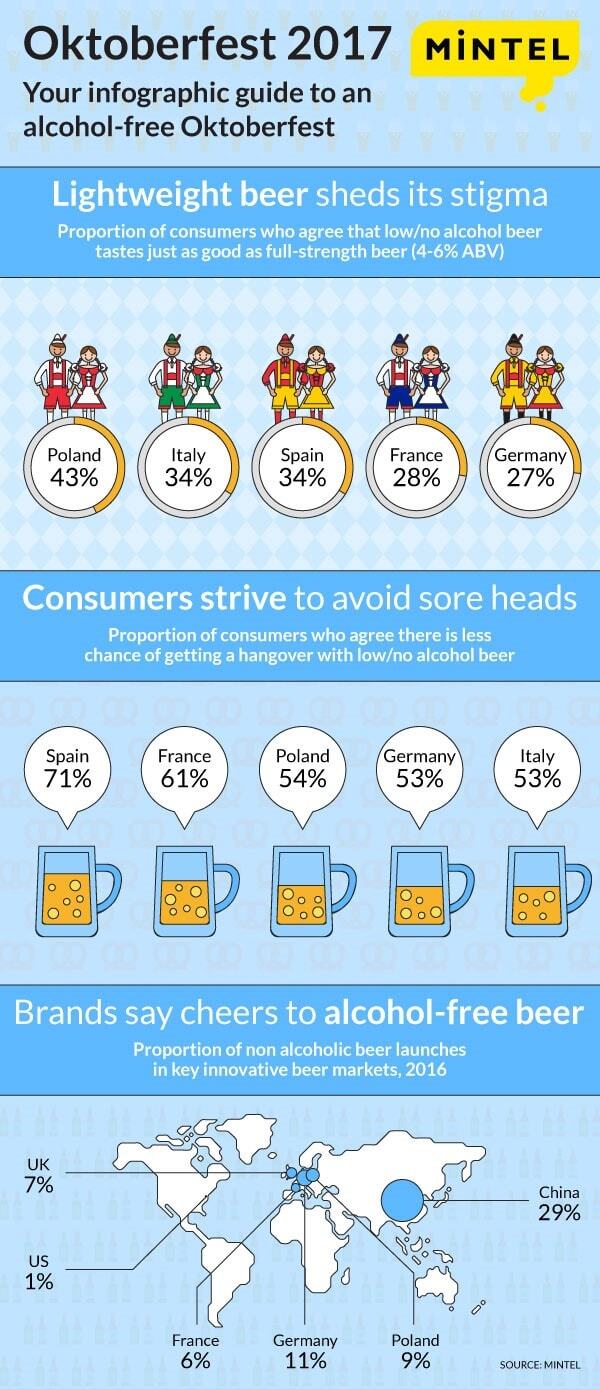
This is not limited to beer, in the US, bottled low and non-alcoholic beverage growth is set to accelerate over the next five years, growing 32%, triple what it did over the previous five years.
The trend looks set to stay as more millennials abstain from alcohol creating a growing market with increasing buying power. Furthermore over 4 million Brits are expected to take part in dry January 2020 and in previous years this has led to 72% of participants drinking less alcohol six months down the line, increasing the potential market for low alcohol beers.
- Alcohol-free beer = no more than 0.05% ABV
- De-alcoholised beer = no more than 0.5% ABV
- Low-alcohol beer = no more than 1.2% ABV
- Alcoholic beer = contains more than 1.2% ABV
Source: Social Standards into organic customer conversations on beverages; low and no alcohol have beverages have been spoken about 85% more on social media channels in the last two years, demonstrating the rising consumer interest in the lifestyle and associated drink categories.
Whereas social media conversations regarding traditional alcohol such as beer (-23%), wine (-19%) and spirits (-15%) have declined since 2017.
Their research comparing low to no alcohol also indicates that consumers are more interested in moderation than complete abstinence.
Major corporations are already reacting to the change with Heineken recently putting its alcohol-free beer “0.0” on tap at 1,500 UK pubs.
What does the rise in alcohol-free (NOLO) beverages mean for drinks manufacturers?
Tax on alcohol has increased significantly over the years and legislation such as minimum alcohol pricing has been enforced in Scotland and remains under consideration in England.
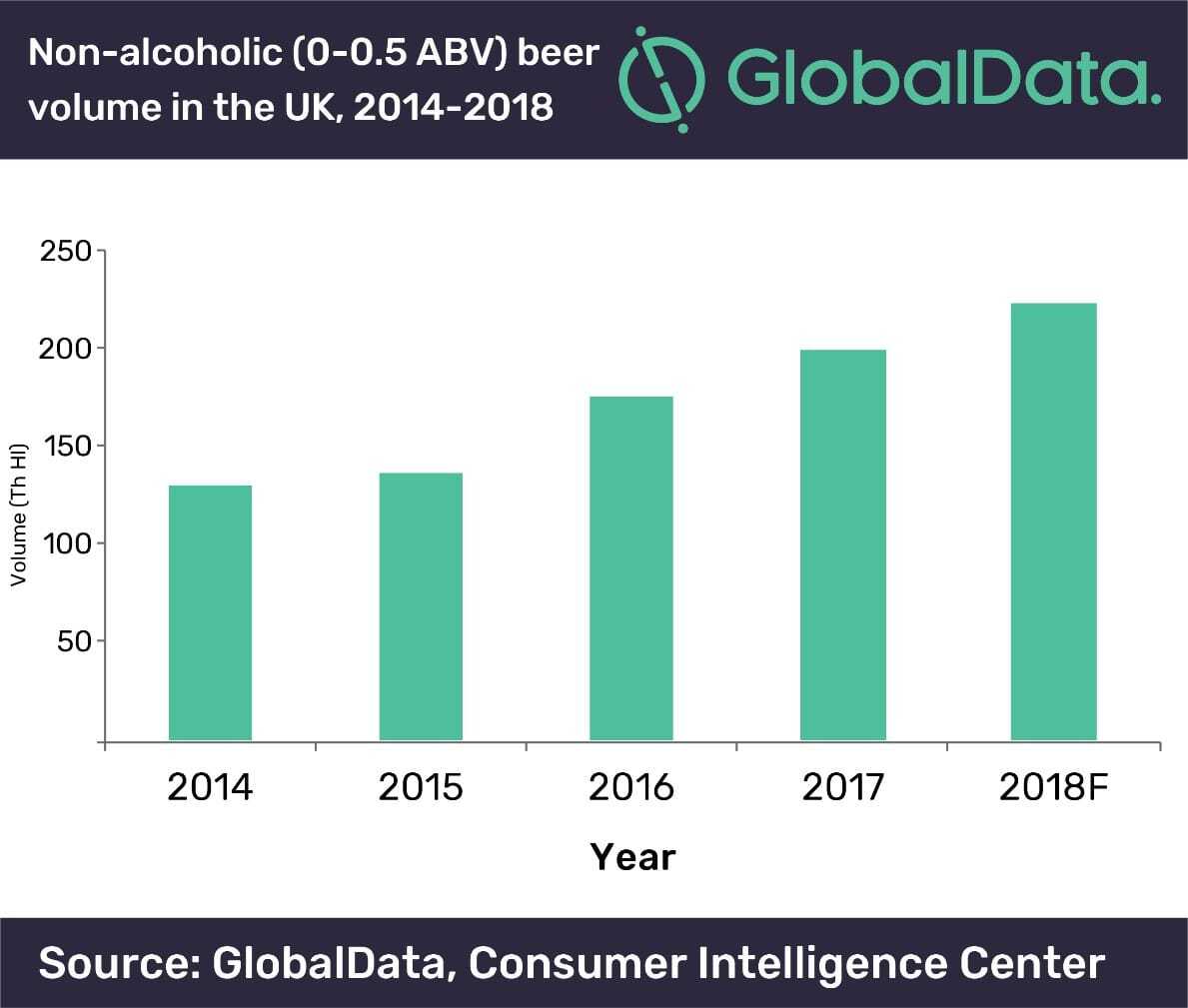
This represents a significant challenge for drinks manufacturers as the link between alcohol pricing and sales is well established.
Drink manufacturers can diversify their risk by investing in non-alcoholic or NOLO drinks that are unlikely to see similar tax increases.
Their popularity with younger consumers means it is an attractive market for brewers long-term and the reduced tax rate on non-alcoholic drinks allows for higher profit margins.
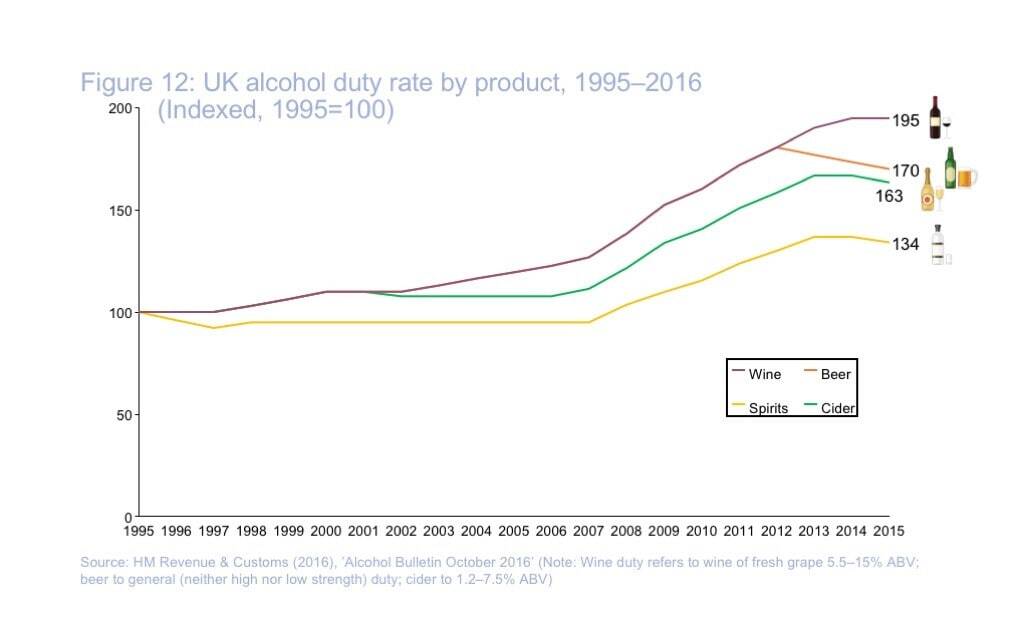
This is already having an impact on the UK market as Heineken recently launched the largest marketing campaign for alcohol-free beer in UK history, Diageo, the world’s second largest distiller, invested in Seedlip a non-alcoholic spirit distiller based in England and Nirvana Brewery opened the first solely non-alcoholic beer brewery in the UK in 2017.
Ultimately the growing NOLO drinks market represents a huge opportunity for beverage producers to diversify their product range and alleviate the risk of flat beer sales and increased tax or legislation. to give drinkers more choice
This is creating an increasingly competitive landscape which is likely to be focused on marketing alcohol to millennials and younger consumers with ethical ingredients, sustainability and health benefits at the forefront of the product marketing. For example, Made in Chelsea star, Spencer Matthews has released a low alcohol gin called Cleangin which is aimed at sociable but health conscious millennials and the Yorkshire-based Temperance Spirit Company released the first premium-tasting teetotal G’n’T to give drinkers more choice.
Companies which can successfully target the profitable millennial market, have an opportunity to earn a share of a growing market, reducing reliance on uncertain alcohol sales whilst increasing profit margins, ensuring a fruitful future for drinks manufacturers.
For more information on changes and innovation within the beverage industry, please read our free guide.
Related
Clearmark Crafts Relationships with Leading Beverage Associations
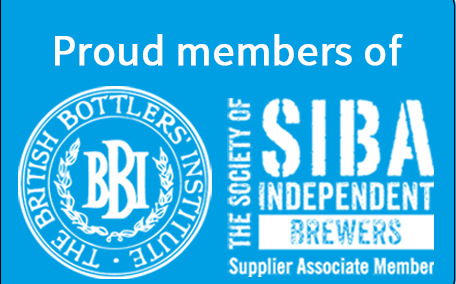
More Resources

